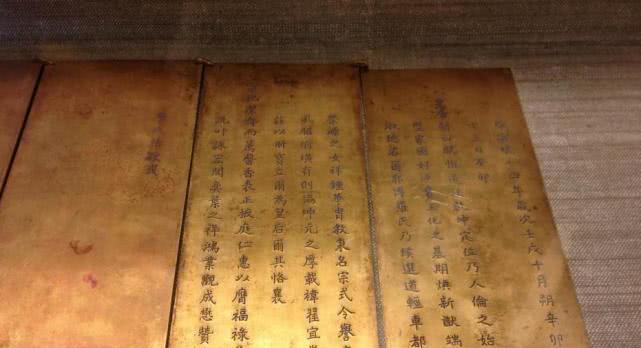Since ancient times, tomb robbers have been in an endless stream, mainly because tomb robbers have huge benefits, but in the high returns are accompanied by high risks, as the saying goes: "people die for money and birds die for food", and the punishment of tomb robbers has always been very severe.

In ancient times, the arrest of tomb robbers is usually sentenced to death, even after the establishment of New China, the theft of national cultural relics may also be sentenced to death, today the author will talk to you about the three major tomb robbers who have been arrested since the founding of the People's Republic of China, one of which is known as a lieutenant who touched gold.
The first forbidden city stole treasures
The Forbidden City treasure theft is not a tomb robbery in the strict sense, but it is all theft of national cultural relics, in essence, there is no difference, this incident occurred in August 1959, Shandong Shouguang villager Wu Qinghui went to beijing sister's home to visit relatives, a play is many days.
Wu Qinghui, who was idle, quickly spent all the money in his pocket, and came up with the idea of quickly getting some money, just in time to meet the opening exhibition of the Forbidden City Treasure Museum, many national cultural relics were exhibited, although Wu Qinghui did not understand the knowledge of cultural relics, but when he saw the golden candor, he also knew that it was gold.
Wu Qinghui decided to steal some gold from the Forbidden City in exchange for money, he spent fifty cents to buy a pair of pliers, and then mixed with tourists into the museum, he wandered around and chose to hide in the public toilet, until after the closure, after which he returned to the exhibition hall and began to steal.
He broke the glass with pliers and stole a gold book and 5 treasure swords, he did not know that the stolen gold book was a letter of appointment from the Qianlong Emperor when he was engaged, and its cultural relics were far more significant than the gold itself, it was a national treasure, and after the successful theft, Wu Qinghui immediately fled from Beijing.
The day after the incident, the police formed a special team and arrested him on the train back to Shouguang in Shandong, and in March 1960, the Beijing court tried Wu Qinghui and sentenced him to life imprisonment for stealing national treasures.
Second, the head is exchanged for mud
As we all know, the Terracotta Warriors and Horses of Qin Shi Huang are national treasure-level cultural relics, but at the beginning of the excavation of the Terracotta Warriors, most people could not understand the significance of their cultural relics, and only a few cultural relics dealers knew that this thing was very valuable, so that they secretly fought the idea of the Terracotta Warriors.
In 1987, the unemployed vagrant Wang near Xi'an, Shaanxi Province, heard that the terracotta warriors unearthed were valuable, so he decided to steal the terracotta warriors for money, he thought that stealing things was at best a lesson, so one night, he climbed over the wall and entered the museum where the terracotta warriors were unearthed.
Many of the newly unearthed terracotta warriors were placed in the open air of the museum's backyard, waiting to be processed, and Wang Gengdi entered it only to know that he could not move the terracotta warriors at all, so he took away a terracotta warrior head, and the one he took away happened to be the head of the general, and a total of 6 were unearthed.
The case of Wang Gengdi stealing the head of the general's figurine was a sensation, the black market speculated the price of buying the head of the general's figurine to one million yuan, and finally arrested Wang Gengdi before selling the figurine head, and the result of the trial was that Wang Gengdi was sentenced to death for stealing first-class cultural relics.
Third Yao Yuzhong
If the first two are not considered tomb robbers in the strict sense, then this Yao Yuzhong is definitely a tomb robber, but also a tycoon in the field of tomb robbers at that time, with the title of "Captain Touching Gold" in the tomb robbery world, and is the leader of a group of tomb robbers.
Yao Yuzhong once had some kung fu in feng shui and tombs, his ancestors were feng shui masters, he used his ancestral knowledge to choose ancient tombs, and formed a tomb robbery team, he was alone every time to step on the point, and then led a group of people to dig.
He first selected the treasure he dug up, and then distributed the rest to the rest of his accomplices, his practice made many people cooperate with him once or twice and then left him, and later Yao Yuzhong was arrested, mainly because he chose a valuable treasure, causing disputes.
Unwilling accomplices reported it, Yao Yuzhong was arrested and made a big fuss, saying that what he most wanted to steal was the mausoleum of Qin Shi Huang, but he would not have a chance, and on April 14, 2016, the Chaoyang Court in Liaoning Province sentenced him to death with a suspended sentence of 2 years.